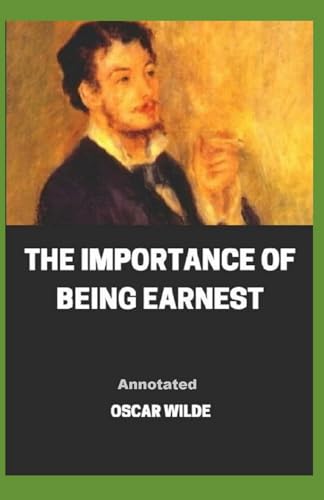What do you think?
Rate this book


101 pages, Paperback
First published January 1, 1895
Jack: Gwendolen--Cecily--it is very painful for me to be forced to speak the truth. It is the first time in my life that I have ever been reduced to such a painful position, and I am really quite inexperienced in doing anything of the kind...
Algernon: My dear Aunt Augusta... The doctors found out that Bunbury could not live... so Bunbury died.
Lady Bracknell: He seems to have had great confidence in the opinion of his physicians. I am glad, however, that he made up his mind at the last to some definite course of action, and acted under proper medical advice.